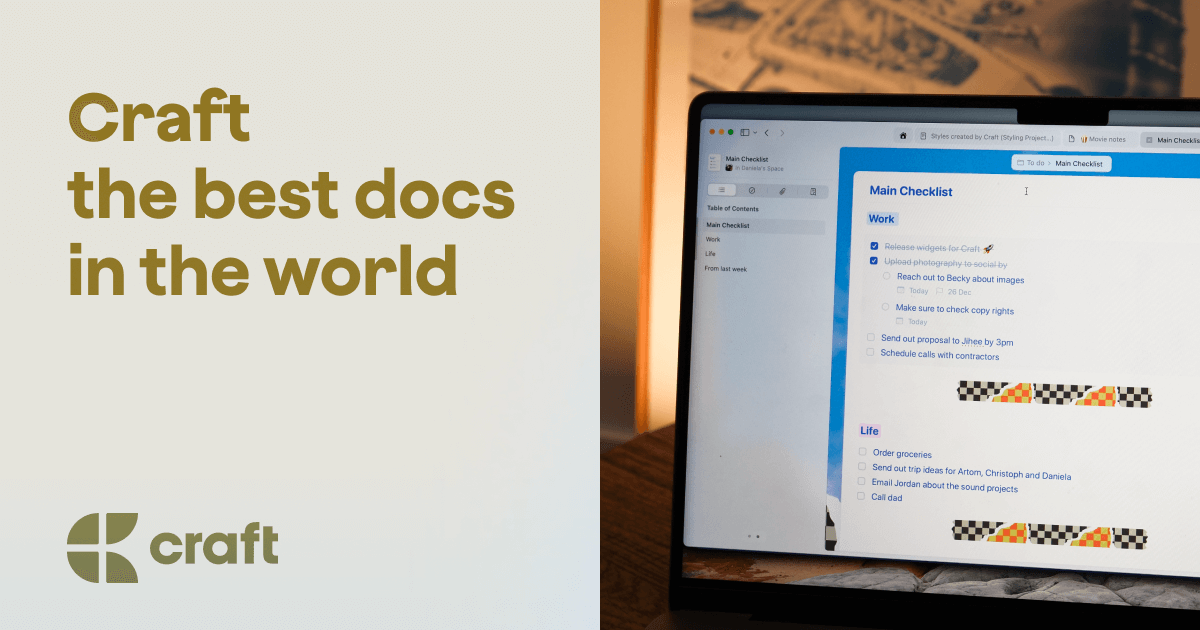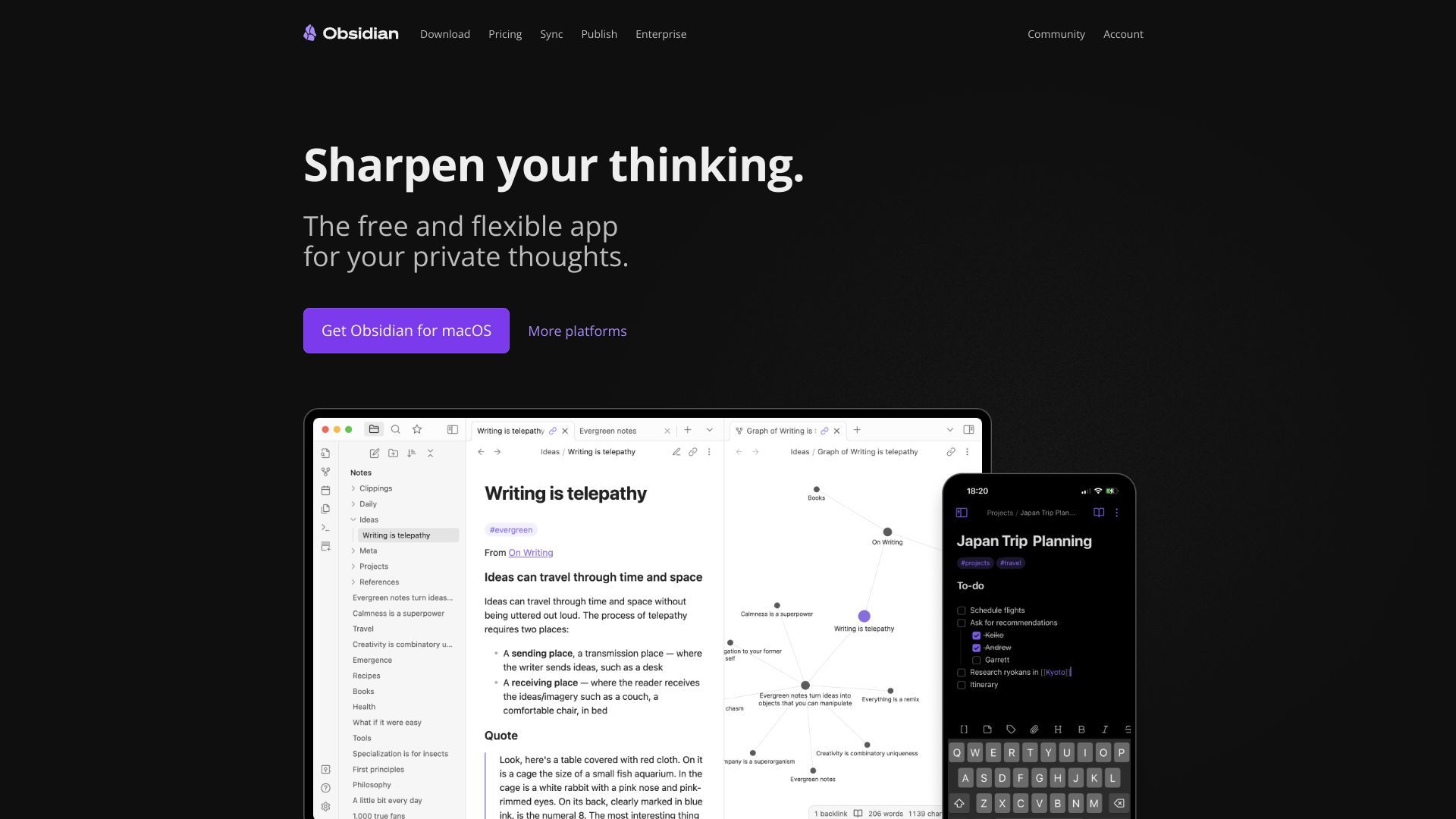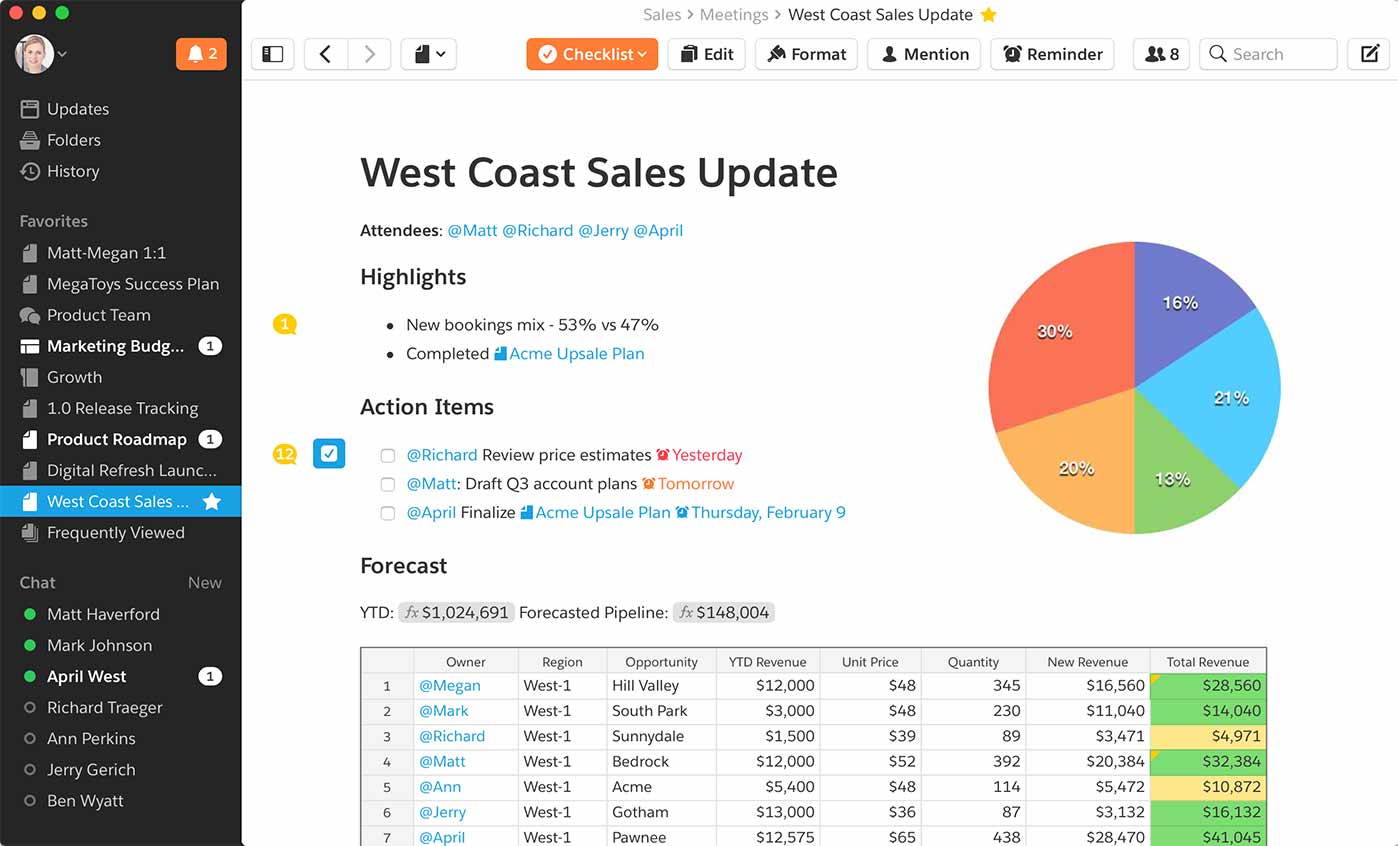Advanced Documents
Advanced Documents, alternately called Collaborative Documents, or Documents Reimagined is a very dynamic, rapidly evolving set of tools that leap out from traditional personal productivity applications, notably Microsoft Word.
Most offer Realtime Collaboration, in which each individual can see where and what others are working on, jump in, help with content creation and edits. Most have a robust REST API, and have many One Click Integrations, which enable all kinds of Workflow Automations.
The current market leader is Notion, which boasts a massive user-base. The most feature-rich competitor to Notion is Coda, however Coda was acquired by Grammarly. Microsoft, which of course has the most massive business customer-base, has introduced Loop.
An early market entrant was Quip, quickly acquired by Salesforce and likely has strong integrations with the Salesforce platform and tooling, thus potentially being good for Sales Support.
(2025-08-27T18:44.934Z)
Perplexity Query
(2025-08-27T18:44
.934Z)
Question:
What are Advanced Documents tools like Notion, Coda, Quip, and others?
What do they do that normal documents like Word or Google Docs do not?
Who are some advanced document providers that are less well known?
Model: sonar-pro
Advanced Documents, A Primer
Advanced documents tools like Notion, Coda, and Quip are integrated workspace platforms that combine traditional word processing with databases, interactive content, collaboration features, and customizable workflows. Unlike standard document editors such as Microsoft Word or Google Docs, these tools are designed to function not just as documents but as modular, flexible digital workspaces that support both structured and unstructured data, collaborative project management, and process automation.
[ukev2v]
[2bhjk7]
[mflby5]
[5ikzem]
What Do Advanced Documents Tools Allow That Normal Documents Do Not?
Key capabilities not found in standard document editors include:
- Nested Pages and Documents:Unlike flat file structures (like in Google Docs), these tools allow you to nest an unlimited number of pages or sub-documents within a single workspace, making it easier to organize related content hierarchically. [mflby5]

- Collaboration and Real-Time Editing:Advanced access controls, in-line comments, task assignment, and real-time collaborative editing are native. Features such as mentioning teammates, adding comments on specific content blocks, and live chat are integrated for smooth collaboration. [2bhjk7] [5ikzem]
- Rich Integrations and Embeds:Support for embedding content from other tools (e.g., Figma, Miro, Google Sheets), as well as native integration with calendars, kanban boards, and third-party APIs to automate actions and data flows. [2bhjk7] [mflby5]
- Unified Knowledge Base and Wikis:Ability to create internal wikis, Knowledge Bases, or company handbooks—hyperlinking and structuring information across a self-contained modular system.

Comparison Table: Advanced Docs vs. Traditional Docs
| Feature | Advanced Docs (Notion, Coda, Quip) | Traditional Docs (Word, Google Docs) |
| Dynamic Databases | Yes | No |
| Nested/Linked Pages | Yes | Limited/Nested folders only |
| Embedded Kanban/Timeline | Yes | No |
| Internal Automation | Yes | No |
| Collaborative Task Lists | Yes | Limited (Comments/Suggestions) |
| API and Rich Integrations | Yes | Very Limited |
| Customizable Workflows | Yes | No |
| Project Management Views | Yes | No |
| Embedding External Apps | Yes | Limited |
| Inline Comments/Chat | Yes | To some extent |
Advanced Document Providers: Less Well-Known Examples
In addition to the most prominent platforms, there are several lesser-known advanced docs providers, including:
- Airtable: Focuses on spreadsheet-database hybrids with customizable views and light automation.
- Slite: Emphasizes a clean knowledge base and team wiki experience.
- Fibery: Integrates docs with work management and flexible databases, particularly for product teams.
- Confluence: Atlassian’s collaboration-focused workspace, strong in documentation and team spaces.
These tools may be less mainstream but cater to specialized workflows, enhanced knowledge management, or different platform ecosystems.
Summary of Distinctions:
- Traditional documents focus on linear narrative, formatting, and basic collaboration without built-in structuring or workflow logic.
Citations
[ukev2v] 2025, Jul 25. Coda vs. Notion: Which workspace app is right for you? [2025] - Zapier. Published: 2025-02-11 | Updated: 2025-07-25
[2bhjk7] 2025, Jul 31. Compare Coda vs. Quip - G2. Published: 2025-07-30 | Updated: 2025-07-31
[mflby5] 2025, Jan 20. Switching from Quip to Coda, Quip to Coda migration | Guides. Published: 2022-09-30 | Updated: 2025-01-20
[cav4j9] 2025, Aug 22. Smart(er) documents - Quip, Notion, Airtable, Coda or good old .... Published: 2020-01-29 | Updated: 2025-08-22
[5ikzem] 2025, Apr 14. Compare Coda vs. Notion vs. Quip in 2025. Published: 2025-01-01 | Updated: 2025-04-14





